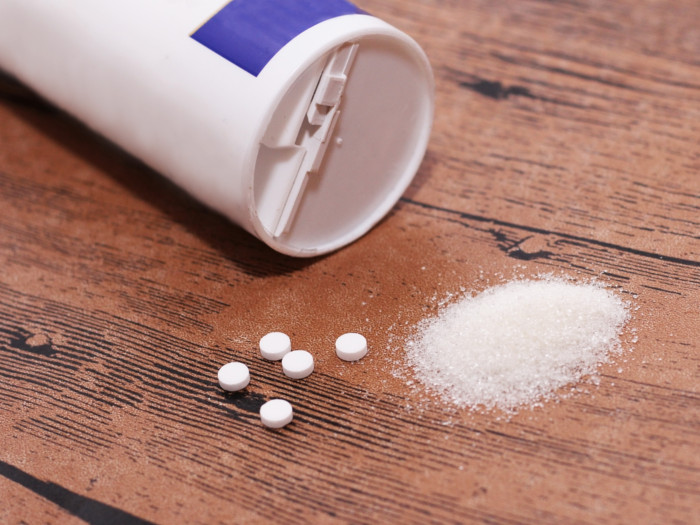How good are low-calorie sugar alternatives? Research seems to be in some dispute over this with some studies claiming that it can disrupt our metabolism and add to weight gain, while other studies claiming exactly the opposite. A new Yale study, published in the journal Cell Metabolism, has come up with a new insight that could settle the debate between these two contradictory findings. [1]

Are low-cal sweeteners bad for you? Photo Credit: Shutterstock
The study revealed that people who consume beverages with low-calorie sweeteners like sucralose experienced disruption in their metabolic and neural responses. However, this occurred only when the beverage was accompanied by a carbohydrate. In most cases, this was a form of tasteless sugar that was also added to the drink. On the other hand, people who consumed drinks with only low-calorie sweeteners or with real sugar experienced ni such disruptions in their metabolic or neural responses.
The study was conducted on 45 healthy participants, aged 20 to 45. They were randomly assigned to consume three types of drinks:
- Beverages with sucralose
- Beverages with sucrose
- Beverages with sucralose and maltodextrin.
The team also ran a parallel test on adolescents, aged 13–17. The team studied glucose tolerance and taste perception. They also studied the brain’s response through a functional MRI.
They found that when sucralose was consumed along with a carbohydrate, it showed a rapid impairment of glucose metabolism. Adults also displayed reduced insulin sensitivity and neural response. However, when the beverage was taken without any additions, no changes were observed.
